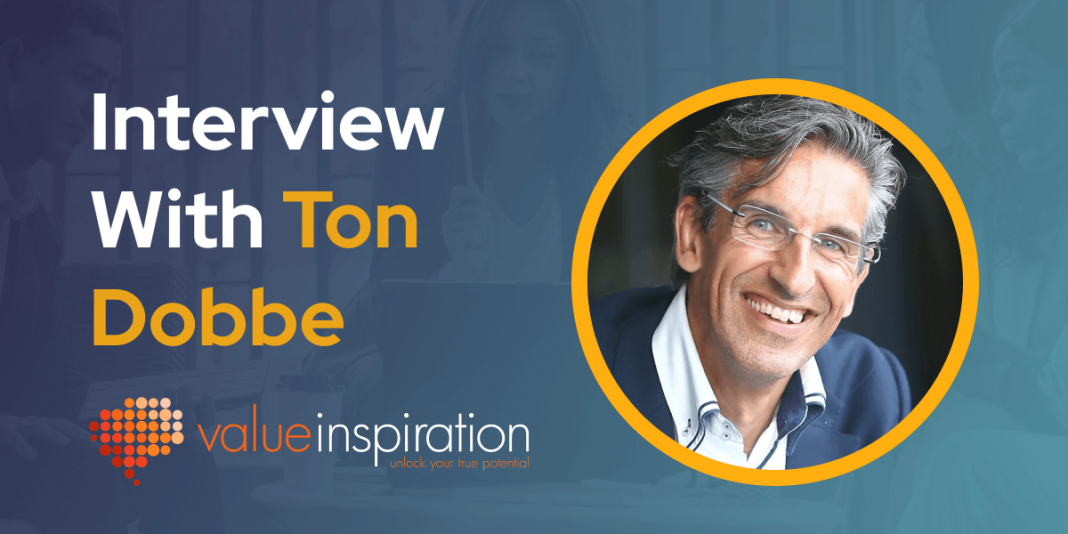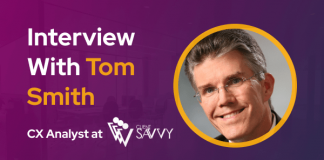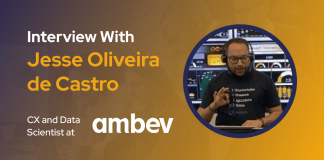Hi Ton, tell us about yourself and your background?
I am the founder of Value Inspiration and the author of The Remarkable Effect.
I’ve been immersed in the B2B software space for close to thirty years and have always been fascinated by product marketing, product strategy, andwhat’s next.’
In 2017 I started my own business. What I saw was that most software companies find it challenging to stand out in their market. Or worse – that somehow, somewhere they’d lost the edge they previously had.
The big problem I continually saw with this is that not only do they continuously compete on price, experience too low win-rates, and feel pressured around both top-and-bottom lines. What’s worse, the market doesn’t get to enjoy some of the most brilliant innovations.
So that’s what I decided I wanted to help to solve.
Many things have happened since, but to give the short story: To help address this, I published my book – The Remarkable Effect, in which I reveal a framework of 10 traits that define the software companies we keep talking about. In the slipstream of that, I founded my tribe – a structured program where founders and CEOs of B2B Software companies from around the world define together what it means to be remarkable in business software.
The result is momentum and impact that makes them proud. And that gives me the energy to go all in. Other than that, I host the weekly Tech-Entrepreneur-on-a-Mission podcast, with the sole purpose of sharing compelling stories of the value we can unlock when technology and people blend in the right way.
Online commerce was booming in 2020; how did it affect brands’ marketing plans? – What should be the main focus for brands this year?
It indeed made a significant shift. I enjoyed interviewing many customers who made the transition to online commerce due to a project I executed for one of my customers (Sana Commerce) in the Netherlands.
The biggest challenge was their inability to deliver the same experience and quality their customers use to enjoy from them in the ‘offline’ world.
I’ve also seen a shift in brands’ ability to reach customers online and create a meaningful connection. There’s simply too much noise. And what many realize is that the messaging from pre-Covid doesn’t work anymore.
I believe the keyword here is: Relevance. So focus for brands in 2021 should be a deep reflection of how relevant their message is to their ideal customers. Too many brands talk ‘at’ their customers rather than ‘with’ them. This requires empathy.
In your POV – What is the ultimate checklist for a good digital transformation strategy?
An interesting question in a vast domain. I’ve been thinking about this a lot in the past years and did quite some work to step into the Chief Digital Officer’s shoes. I created an overview of the steps I see as pragmatic and the key to creating value for both customers and the company.
In essence, I believe this means bridging the gap between organizations’ present
capabilities and their future strategic needs. It also means disrupting traditional ways of doing business to improve performance and stay ahead of the competition.
Following the maturity, path is the way to go: from Standardize to Optimize to Predict to Drive. Here’s a link to a document that explains that.
How much has the CEO’s role changed in the social distancing era – what role has a digital transformation in this crisis?
Massively. I remember the moment so well when COVID started. I had just started my tribe, and we had weekly masterminds around the framework I reveal in my book. Only four weeks after we started, the world changed – offices were closed, and the world started to become ‘virtual.’
The top 3 things that I have seen change most for them is this:
- Execute a high-level of curiosity to find new ways to create new value possibilities. Crisis always brings new opportunities for innovation. The people I work with know that like no one else. Complacency, however, is a dangerous thing. Too often, we tell ourselves stories we’ll be OK. This is where often ignoring opportunities that are right in front of our eyes.
- The requirement for them to truly lead – and with that, I mean establish a new level of trust in the organization around how they were going to come out better from this crisis. So a lot of focus has shifted to further clarifying the long-term vision and aligning everything short-term to double down on that.
- A shift towards creating the energy and motivation inside their organization to go the extra mile in these challenging times – and do that in a way no one has ever experienced: Out of office. Many CEOs I speak with have made it a habit to check in with their staff more often and practice empathy.
Ton’s checklist for CX strategy
In your POV – What is the ultimate checklist for a good customer experience strategy?
I guess this all boils down to focusing on at least 7 of the ten essential traits I describe in my book:
- Understand you can’t please everyone.
- Offer something valuable and desirable
- Strive to be different, not just better
- Master the art of curiosity
- Aim to create fans, not just customers. It seems logical but often isn’t. It’s a mindset
- Focus on the essence, i.e., where you can make the most significant difference for your customers
- Lastly: Surprise, and hit the right nerve.
People buy from people – so be human, and find the resourcefulness to do the unexpected.
What was the biggest lesson you learned in 2020?
There are so many! This is what instantly comes to mind:
- What got us here won’t get us ‘there’ – continuously challenge the status quo
- That standing still is not an option. Continuous learning is critical
- How key it is to find your peers to remove your blind spots. Too often, we’re too close to the problem to see it. That’s where peers are the answer because they don’t have the emotional connection to your problems
- The importance of reflecting and being honest with yourself. Too often, we hide from things we don’t even realize
- Care for your customers. Show empathy, reach a helping hand in difficult times. In the end, that’s the secret to building strong relationships.
The most important? To me, that would be the last one.
2020 was the year of webinars and online events, what was your favorite one?
altMBA – by far. I’ve been a big fan of Seth for a long time and have done various of his online workstreams such as The Marketing Seminar and StorySkills.
Last year I was lucky enough to be part of altMBA between April 20th and May 20th, 2020. Four weeks of intense personal growth around delivering 13 projects together and leveling up with a cohort of people, all desiring to be a change-maker. It showcased the power of how effective learning can be if done the right way.
It looks like working from home is going to stay with us for the foreseeable future, how should Marketing Executives gear up to the changing times?
My advice: Talk more with customers. We simply don’t do that often enough (although we think we do). And when we talk to them, listen. Listen with intent, be genuinely interested, and don’t listen to answer, but to understand.
Once we master that skill, it will enrich all we do – how we communicate, write, engage, etcetera.
The most powerful messaging is messaging that feels like your customer has written it. That’s where your audience will say, ‘you get me.’
Bernadette Jiwa left a compelling comment in a post I was involved in: “Just remove the word marketing from your vocabulary, and replace it with ‘Having a helpful conversation.’ It changes everything. And that starts by talking and listening to your customers.
Last but not least, what is your favorite CX metric?
It’s easy to say NPS or CSAT – but I believe most of them are still biased. What speaks volumes is the number of genuine reviews and comments customers leave about your business/product without asking.
It requires you to do what it takes to turn customers into advocates: people that find your products/services so valuable that they mention them to others. People that will stand up for you and protect and stand by you in difficult times – because they care.
It’s hard – but so worth it. It’s the reason why I wrote my book The Remarkable Effect.






